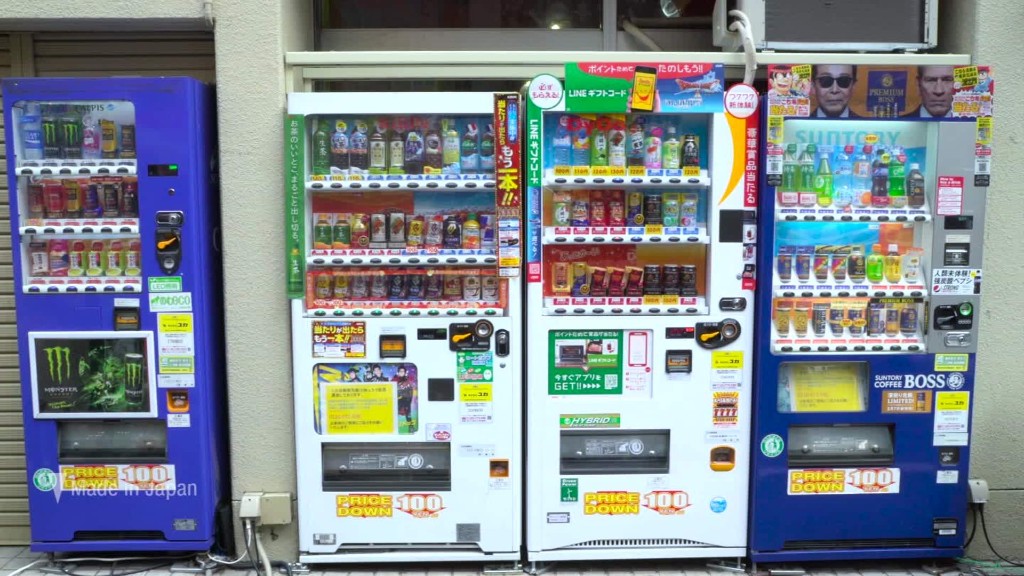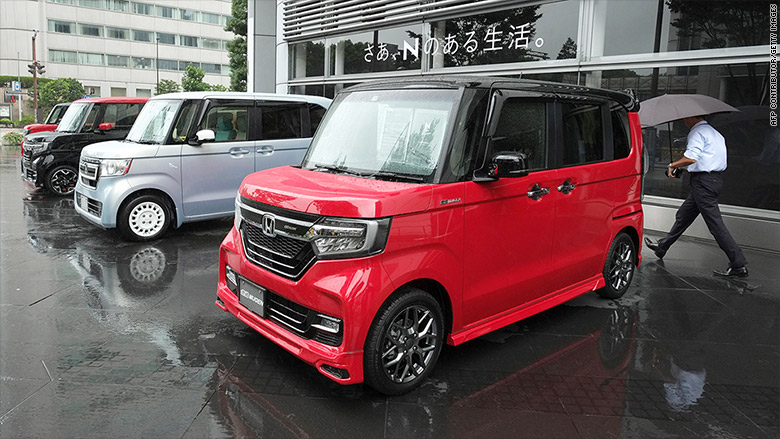
President Donald Trump may complain about American cars being locked out of the Japanese auto market but, experts say, that's not the case.
The Japanese automotive marketplace isn't closed as much as it is, simply, already full.
Japan is dominated by one behemoth automaker, Toyota (TM). Six others, including Mitsubishi, Honda (HMC) and Nissan (NSANF), are battling each other for what market share is left. Meanwhile, car sales have been declining over the long term.
John R. Harris is a Canadian who has been living in Japan for decades, spending much of that time as a speech writer for top auto executives there. He compared the Japanese automotive market to trench warfare. Automakers are dug in, trying to hold on to what they have, while pummeling one another for fractions of a percentage point in market share.
The American Automotive Policy Council, a group representing US-based automakers, has complained in the past about arcane rules that tend to prevent non-Japanese automakers from competing there.
But, independent experts say, when it comes to selling cars in Japan, domestic automakers face as many regulatory challenges as their foreign rivals.
In terms of tariffs, Japan has none, while the US does apply tariffs to cars brought into the US from Japan.
The AAPC did not respond to requests for comment on the alleged Japanese obstructionism.
The biggest challenge faced by American auto brands in Japan is an outdated perception of quality, said Hans Greimel, a Tokyo-based reporter for industry newspaper Automotive News.
"The image of American cars is that kind of 1970s floating boat image," he said, "where the fit and finish is wrong, they guzzle gas and the cars are too big for the streets."
Volkswagen is one foreign brand that sells well in Japan, probably because it makes small cars that are considered to be of high quality, said Harris. German luxury brands like Mercedes-Benz (DMLRY)and BMW also sell well there, according to data from LMC Automotive.
A significant of portion of sales made by domestic Japanese automakers are for kei cars -- pint-sized peculiarities of the Japanese auto market. These cars are about two feet feet shorter, end to end, than a Honda Fit or Toyota Yaris, and they are powered by engines that produce, at most, 63 horsepower.
Japanese regulations make kei cars less expensive and easier to buy and own than a standard automobile. They represent over a third of all cars sold in Japan but no non-Japanese automakers offer them. There's little incentive to since the cars can only be sold in Japan and the potential profits, if there are any at all, are likely as tiny as the cars themselves.

The Japanese market was blocked off to foreign rivals during the decades after World War II, said Grant Faulkner, vice president for business with LMC Automotive, an industry consulting firm.
"By the time the Japanese reopened their markets in the '70s Japanese consumers were already pretty comfortable buying Japanese brands," he said.
Another factor is the generally conservative and conformist attitude of most Japanese auto buyers, he said.
"You don't want to be the first guy on your street who's driving a Chevy," he said.
Of course, there are those who want to buck the conformist trend, he said. That means that, ironically, the American models that tend to do best are those that really stand.
For instance, there's Fiat Chrysler Automobiles' (FCAU) Jeep brand. Jeep is helped by two big factors, said Greimel. For one thing, it offers a unique and desirable image not matched by any Japanese automaker.
"Jeep is something completely American," he said, "but in a good way."
Also, Jeep offers its vehicles with the steering wheel on the right-hand side. As in England, drivers in Japan travel on the left-hand side of the road. So automakers that sell right-hand drive cars will do better there.
"Japan is a tough market to crack," he said, "but those that are determined to do it and have the brand power to do it manage to find a way."


